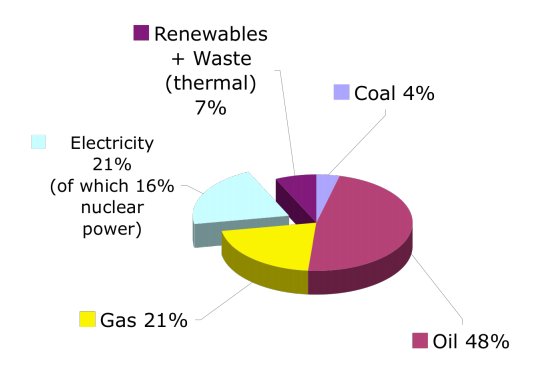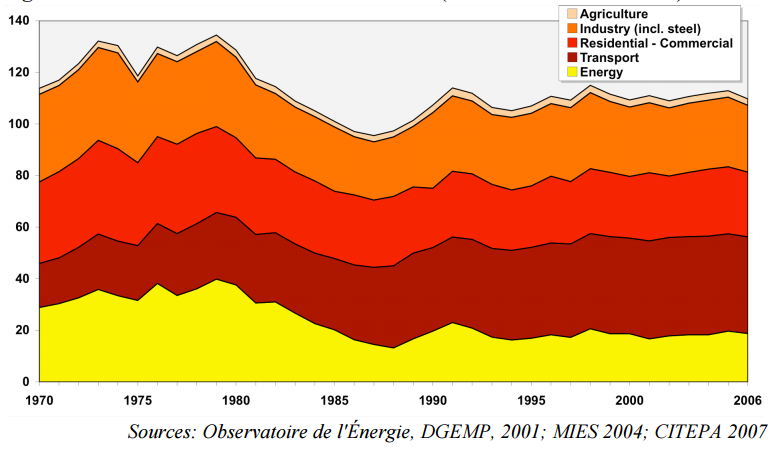In my last couple of blog posts, I’ve been talking about
when Nuclear energy goes wrong. But it is important to remember that Nuclear
energy does have its successes. In one place this is evident is France, which
produces the largest amount of nuclear energy as a percentage of its total
electricity production compared to any of country in the world; around 70-80% depending
on France’s electricity demand for the day (Philip Ball 2011). In 2007, France had the second largest
EU population of 63 million, the world’s 7th largest GDP, and 8th
largest energy consumption, while still providing 47% of all nuclear energy in
the EU (Mycle Schneider 2009). Hopefully this gives you a picture of the scale of France’s nuclear
power programme.
| Nuclear share of total energy generation (Adamantiades et al. 2009) |
Why and How
In 1973, an oil crisis occurred caused by an embargo by the
members of OAPEC (Organisation of Arab Petroleum Exporting Countries) due to
American involvement in the Middle East (no surprise there). This led to France’s
president at the time, Pierre Messmer, to release a plan in 1974 to gain energy
independence for France through Nuclear power (WNA 2016). This led to a large scale
nuclear power project which was envisioned to produce 170 nuclear power
stations by 2000 (Sezin Topçu 2007); while the number of stations was only 58 in 2011 (Philip Ball 2011), the
efficiency of their energy production makes up for the lower amount. The rise
in nuclear power was backed with at least 75% of all public research and
development expenditures for energy being used for nuclear fission between 1985
and 2001 (Mycle Schneider 2009).
As France is relatively low in energy resources apart from
coal that is out-priced by cheap imports (Philip Ball 2011), Nuclear energy was one of the only
viable options that could give France the energy independence it desires. Other
advantages of nuclear over coal is the fuel used; Uranium doesn’t degrade over
time while coal does, It has 1/10 the cost of coal in terms of equivalent
energy produced, and is 4 magnitudes (104) smaller than coal in terms
of equivalent energy (Adamantiades et al. 2009) .
From the outset, the French Government chose to reprocess
used fuel to re-cover uranium and plutonium, to help reduce the amount of
high-level waste that needs disposal. This has led to 20% of all the electricity
produced by EDF (Electricte de France) to come from recycled fuel (Philip Ball 2011). For the disposal of final waste,
France is planning on opening a deep geological repository for a permanent
solution. Research at its facility in Bure, has confirmed the rocks suitability
to the task and should this go ahead, it could store all of France’s current
nuclear waste, and that created in the coming 20 years from its completion (Declan Butler 2010).
Is it a true success?
 |
| Final energy supply in France in 2007 (Mycle Schneider 2009) |
 |
| CO2 Emissions from France in 1970-2006 (Mycle Schneider 2009) |
France’s story makes me wonder, that for how far France has come in terms of nuclear energy, it has a long way to go if it wants to be energy independent and for nuclear energy to be a big part of that. But is it possible for a country to be powered solely by nuclear? Can all the processes be powered by nuclear that are now driven by fossil fuels? Electric powered cars are available now, but larger costs and reduced range stops them from becoming the main source of transport. Perhaps the technology is not where it needs to be, for nuclear power to become the large force in energy production it could be.
No comments:
Post a Comment